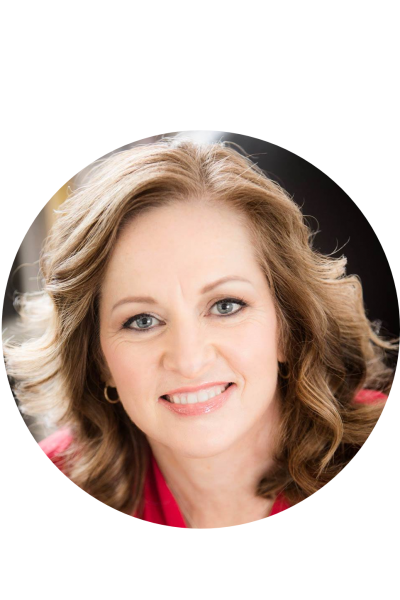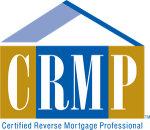The Roadblocks to Healthcare Plaguing our Senior Citizens
As we age, our dental costs become more significant. Senior citizens are often faced with an overwhelming quote for the dental work they require to carry on a normal life. Many of them put off the work they need simply because they cannot afford it.
The average amount covered by dental insurance is less than $2,000 per year. That is not nearly enough to cover the expensive dental work many senior citizens require. These people have become creative with their finances to be able to get the dental work they need.
One-way senior citizens are able to cover their dental expenses is by taking out a reverse mortgage on their property. There are cases where a person may need anywhere from $8,000 to $40,000 to cover their whole dental treatment. It is an exuberant amount of money that the average retired citizen cannot afford.
Millions of Americans are living without dental insurance coverage, that's including approximately two-thirds of Medicare beneficiaries, which turns out to be nearly 37 million people.
They cannot afford to spend money out of pocket for costly dental treatments. It is very alarming because dental work is not a luxury, but a necessity. The quality of oral health is directly connected to the overall health of the body.
Dental disease is linked to cardiovascular and other serious health issues including Alzheimer’s and diabetes. What is a senior citizen to do when they cannot rely on Medicare benefits to cover their dental work? Fortunately, those that have a property with equity have a chance at being able to finance their dental work.
What is a Reverse Mortgage and How Does it Work?
People that are 62 years of age or older may qualify for a reverse mortgage. It is designed to create more cash flow from the equity you have in your property that you use as your main residence.
The amount available for you to borrow depends on your age, the current market interest rate, and the value of the property. Reverse mortgages do have some financial qualifications. Generally the qualifiers are softer than traditional mortgages.
The borrower has no monthly payments and does not have to repay the loan until the home is sold, the person moves for one year or more, or the person dies. The payout can be provided to the borrower in the form of a monthly payment, a line of credit, or a lump sum.
When the line of credit option is chosen, the borrower is not accumulating interest on money not yet withdrawn. It will continue to grow while it is put away waiting to be utilized. Different from a home equity loan or a second mortgage, the reverse mortgage loan does not have to be paid back each month as a regular mortgage does.
Pros and Cons of a Reverse Mortgage
There are several reasons why reverse mortgages are appealing to those of retirement age. These are some of the advantages to taking out a reverse mortgage:
- No need to make additional monthly payments
- Money can be used to pay off other items besides dental work such as daily expenses, updating your home and supplementing your income.
- Flexible payout options including monthly disbursements, line of credits, cash lump sums, or a combination of the three.
- You can pay back the loan at your convenience to restore the equity in your home.
As with any type of loan, reverse mortgages also have their drawbacks. Some of the cons include:
- Reduces the equity in your home.
- Interest is accumulated, which makes the total amount to be paid back larger.
- May result in disappointing loan amounts because it is determined by the appraised value of your home.

Alternative Ways to Pay for Dental Work
A senior citizen has the task to compare different types of options to pay for their dental expenses. A reverse mortgage seems to be one of the best choices for seniors because its terms allow the borrower to keep more money in their pocket every month instead of paying the lender back to pay off the loan.
However, not all senior citizens have equity in their homes. A reverse mortgage is simply not an option for everyone. In these cases, senior citizens are left to choose from private loans, grants, government, charity, and other methods.
There are some clinics and universities that offer pro bono care for seniors. It is a great challenge for seniors to make dental work a priority. Fortunately for those whose property value is strong; a reverse mortgage provides huge relief.
Mortgage Options to Consider
Besides a reverse mortgage, there are several ways to get a loan if you're a homeowner. Let's review the different options to see if you should choose the reverse mortgage or another type of loan. We will review each option below:
Home Equity Loans (2nd Mortgage)
This type of loan has a fixed rate and offers terms from 5 to 15 years. With this type of loan, you're able to borrow the money at once and immediately begin making monthly payments towards the loan. Interest rates for this type of loan are usually lower than other types of loans.
Home Equity Lines of Credit (HELOC)
These are variable rate loans that have interest rates that depend on the prime rate, offering a rate cap at 18 percent. In contrast to home equity loans, you are not required to borrow all the money at once. The challenge is if home values plummet, the lender can cut off your line of credit.
The lender provides a checkbook to allow you to take out funds and pay them back as needed. This type of loan is ideal if you need funds over time.
Cash-out Refinance
Another possibility is to take out additional equity that has been paid into the home or accumulated by the appreciating value of the property. Different from HELOC, or equity loan, a cash-out refinance loan doesn't require you to take out a second mortgage.
These types of loans are ideal when there is a significant market decrease in interest rates. When interest rates are higher than the original loan rates, it would not make sense to choose this option.
You may be required to pay mortgage insurance when refinancing your current home loan, which may make a HELOC or home equity loan a better option to avoid those costs.
How Do I Know if a Reverse Mortgage is Right for Me?
A reverse mortgage sounds like a great option, but it may sound complicated.
You must consider the whole picture and see if a reverse mortgage will be worth doing or if you're better off with other loan options.
It is wise to consult with a financial professional that has your best interest at hand. You benefit a lot from taking your time exploring each option and its implications.
Beware of Mortgage Scams
Senior citizens are often targeted by unscrupulous financial professionals that don't care about their well-being. If you are suspicious of someone that you think might be breaking the law, trying to pull off a scam, or is taking advantage of you in any way, you can file a complaint with your state Attorney General's office, your state banking regulatory agency, and the Federal Trade Commission.
Shopping for a Reverse Mortgage
Once you decide that a reverse mortgage is an option for you, connect to a licensed and experienced Certified Reverse Mortgage Professional like Angella Conrard who can review all your options. The type of loan depends on how the money will be utilized. Be sure the mortgage lender knows your plans to pay for dental work with your reverse mortgage.
An experienced Certified Reverse Mortgage Professional should be able to show you exactly what to expect when taking out a reverse mortgage. The person should show you the figures you can expect to receive, how it will impact your home's equity, and what it will mean for you in the future.
Paying For Dental Work is Possible With a Reverse Mortgage
Being older doesn't mean it is okay to give up on certain physical attributes. This is especially true when it comes to your dental health. Having healthy teeth goes beyond being able to chew food properly and having a nice smile. It is a matter of overall health and quality of life.
Senior citizens should never have to struggle to pay for health costs. Fortunately, creative financing methods are allowing more people to take better care of their well-being. A reverse mortgage is a helpful solution that is providing another avenue for many seniors who would otherwise have a very difficult time paying for dental work.
Before giving up your dream of having a great set of teeth, it is certainly worth looking into the financing options available to homeowners and senior citizens.
For more information, call Angella Conrard, Certified Reverse Mortgage Professional. Request and info pack and learn how a reverse mortgage can make positive changes in your life.








